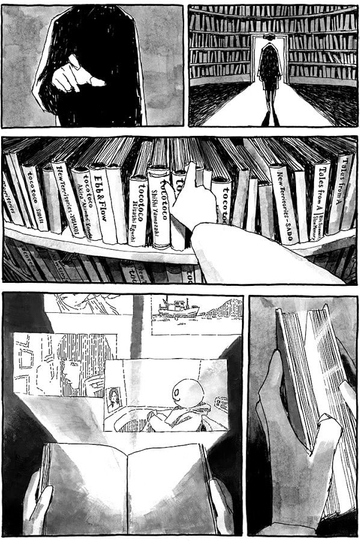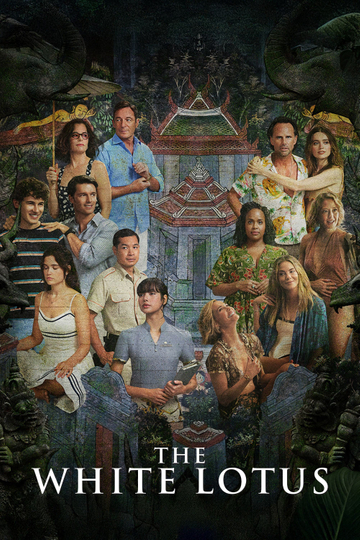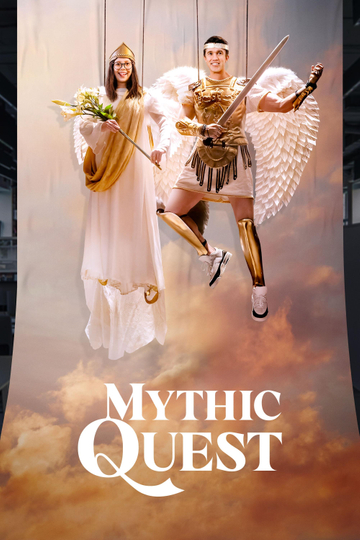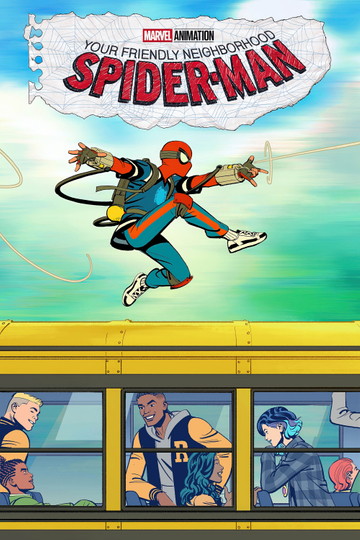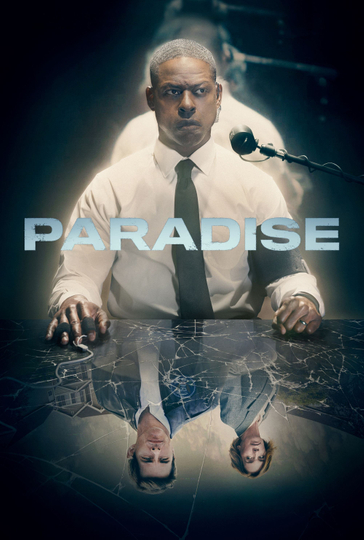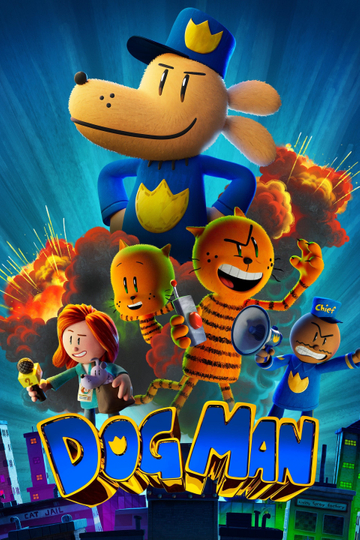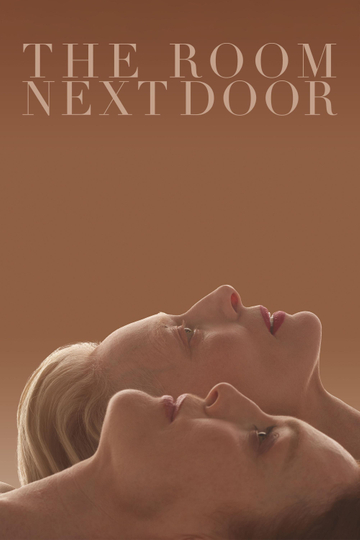Season 2 Episodes
1. SUDA51, Game Creator
In today’s episode, we spend a day with SUDA51, a world renowned video game creator famous for No More Heroes, killer7 or Lollipop Chainsaw, games produced by his studio, Grasshopper Manufacture. Our first stop is the Jingu Batting Dome, a batting center located in the heart of Tokyo, that SUDA51 visits from time to time. The batting center setting is featured in The Silver Case, SUDA51’s first game with Grasshopper Manufacture, where it is used as a secret meeting place between two detectives. We will then visit Grasshopper Manufacture, SUDA51’s workplace where he will tell us more about his work, and the philosophy behind his studio. For a brief lunch break, we will head to Megumi-ya, a close-by soba noodles restaurant. Megumi-ya, compared to other traditional noodles restaurants, is themed around the rock universe and plays rock music - which is quite unusual for this type of restaurant. Later in the afternoon, SUDA51 will take a few of his colleagues for drinks to Kawakami, a restaurant nearby, where Kazuki Morishita, president of the Gung Ho group, who acquired Grasshopper Manufacture, is a regular. Our night will end in Shinjuku Golden-Gai, famous for its narrow streets and bars, we will head to the bar plastic model (bpm), where SUDA51 is a regular. The bpm was featured in No More Heroes, and its bartender, Mr. Sekine often plays music from the game, among other of his records from the eighties.
2. Daisuke Ishiwatari, Game Creator
In a new Game Creator special, we spend a day with Ishiwatari Daisuke, creator of the world-renowned versus fighting game series “Guilty Gear”. We will first explore Ishiwatari’s work environment, where he not only directs the Guilty Gear games, but also composes the music, writes the scenario and also handles game and character design. During our time at the office, we will also meet with Toshimichi Mori, Ishiwatari’s “comrade-in-arms” and rival, who produces the BlazBlue series. Both will share their visions on game creation and their work. In the second part of the episode, we head over to the Minato Mirai area, to follow Ishiwatari during his favorite pastime, walking. During his long walks, he finds the time to clear his ideas and think of new additions to make to his games. In front of the vistas from the Yamashita and Minato no Mieru Oka parks, Ishiwatari is reminded of his childhood spent in South Africa, and how this scenery is different from the overly urban Tokyo.
3. Keiichiro Toyama, Game Creator
In this last episode of our Game Creator special series, we spend a day with Keiichiro Toyama, creator of the Gravity Rush series, the SIREN series and Silent Hill. We will follow Toyama from his commute to work, passing through the traditional Matsubara shopping street, before heading to his work place in Sony Interactive Entertainment’s offices in Shinagawa. Toyama will tell us about his work style, currently extremely busy as the Gravity Rush 2 release is scheduled for early December. At dusk, we will follow Toyama with two of the game’s producers for drinks at an izakaya, where they will discuss their past projects and experiences. At night, we will follow Toyama back to his neighborhood in the Yokohama for a last drink at Cinema Novecento, Japan’s smallest movie theater, that showcases old works on film and also has a bar area.
4. YellowYellow, Artist
In this new episode of toco toco, we will spend a day with YellowYellow, a design and contemporary artist based in Tokyo. As his name suggests, YellowYellow’s work is solely oriented toward the use of the yellow colour, and he regularly hold exhibitions showcasing his yellow possessions. Throughout the episode, YellowYellow will explain the philosophy behind his work and what made him take the “yellow” path. First, we will visit REANT, an antique door shop located in the Kami-Soshigaya area, where Mr.Udagawa, the owner, sells antique doors imported from the United Kingdom for the most part. We will then head to Shibuya to discover the Boucherie AmiaBras, a restaurant specialized in smoked meat and delicatessen where YellowYellow created the store logo and posters. Our last stop will be at Li-Po, a bar honoring the Yellow colour, which also held YellowYellow’s latest exhibition.
5. Shoji Murahama, Anime Producer
In this episode, we follow Murahama Shoji, who is an animation producer currently working as a manager at the Emon Studio. After working at Gainax on acclaimed anime series and founding the Gonzo studio, Murahama is now working on several anime series in this new international studio, aiming at bringing globalization to the anime industry. We will follow Murahama during a themed-game of airsoft, where players dressed as characters from various post-apocalyptic universes such as Mad Max or Fallout gather to play. After that, we will visit the Emon studio to learn more about the company's philosophy and its founder, Li Haolin, who will share with us his company mission, one of which is to nullify the borders of the animation industry. As a science-fiction lover, Murahama will also share with us his perception of imaginary worlds, and the thin line that separates them from the ordinary.
6. KAE, Accessory designer
KAE is an accessory designer based in Tokyo, working under her brand High-Me Tokyo. In this episode, we will follow her in two unique stores she likes in the city in order to learn more about her inspirations behind her work. Our first stop will be at Nazo no mise, a small shop in Nakano, where Morita, the co-owner and designer for the THUNDERBOX brand, curates and sells various items from the eighties and nineties. We will then head towards the core of Shibuya to BOY, a shop hidden inside an apartment building whose owner, TOMMY creates and sells vintage clothes among other items from the nineties. We will then follow KAE to her atelier to discover her creations and her philosophy behind her accessories.
7. Nukeme, Fashion Designer
Nukeme is a fashion designer based in Tokyo. He works on various creative projects, that recently include a collaboration with Urusei Yatsura license and other projects leveraging new technologies. His latest creations feature glitch art, that he creates by hacking into embroidery software, which generates a random aspect to his works. First we will follow Nukeme to Hayatochiri, a select shop located in the Koenji area, whose owner, Goto is also a creator himself. The store features unique creations made by young local designers, and it was the first to feature Nukeme’s work eight years ago. The store’s walls are fully decorated with manga pages, so the store’s visitors can also enjoy some reading while browsing through its wares. Our second stop will be at House@Mikiri Hasshn, a store and gallery space located in Omotesando area. The store combines original fashion creations from Japanese creators, vintage clothes and a gallery space located in the basement. We will have a peek into the current exhibition, Korisho, featuring items that combine traditional Japanese craftsmanship with new technology, such as laser cutting. Its peculiar interior combined with its concept make the store one of Nukeme’s favorite spots in Tokyo. Lastly, we will head to Nukeme’s atelier, where he will tell us about his work inspiration and creations, some of which involve a unique use of 3D printing…
8. ShiShi Yamazaki, Animator
In this episode, we will spend the day with ShiShi Yamazaki, an animation artist based in Tokyo. First, we will head towards Machida, located in Tokyo's suburbs, where ShiShi was born and raised. Machida, located in the southwest of Tokyo, is a peaceful commuting town surrounded by nature. ShiShi mentions she often comes here to find inspiration, walking alongside the Sakai river while listening to music. ShiShi, now based in the city, works in Nakameguro, one of Tokyo's most popular and trendy areas. She will tell us more about her work and how she discovered the rotoscoping technique, which consists of tracing over live footage frame by frame. Due to her unique animation style, ShiShi has worked for multiple large brands in Japan, in addition to music videos and other animation work. Most of her work showcases a character named ShiShi Girl, made in her image, which she will tell us more about...
9. KASHIWA Daisuke, Musician
In this episode, we will spend the day with KASHIWA Daisuke, a musician and composer based near Tokyo. First, we will head to Hino, located in the Tokyo suburbs to the big temple complex Takahata Fudoson. KASHIWA, having lived just behind the complex for a few years, used to often come here to have a walk alone or with his kids, to pray or find inspiration for his music looking at the buildings and nature. A few minutes away from there, we will head to Fureai bridge, which also was a regular stroll for KASHIWA. While he was struggling with composition on his album « 88 », KASHIWA mentions he would also come to look at the river and think about his approach to music. A few years ago, the animation movie director Makoto Shinkai liked this same album and asked KASHIWA to rearrange it as the soundtrack of the movie « The Garden of Words ». In the second part of the episode, we will head to Yoshida Fish Farms, a shop specialized into Japanese goldfishes and koi carps, as well as tropical fishes and plants. Since he was little, KASHIWA loved to build aquariums, which he qualifies as “small universes”. He compares this to his way to make music by assembling various elements and to create such universes in his work.
10. Shinji Tsuchimochi, Illustrator
In this episode, we will spend the day with Shinji Tsuchimochi, an illustrator based in Tokyo. Tsuchimochi studied Japanese painting in Tama Art University, and cites ukiyo-e painter Hiroshige as one of his favourite artists. He decided to recreate one of Hiroshige's most notable works, the One Hundred Famous Views of Edo, to the modern day using his own contemporary illustration style. After three years working on finding and drawing the locations, he completed his book "100 views of Tokyo". Together we will visit some of the locations Tsuchimochi used in his illustrations, which are centered around Shitamachi, the area that was once the center of Edo. We will then head towards Jimbocho, famous for its old book and record shops, to Saboru, a cafe held for more than 60 years by the same owner, which truly depicts the charm of the area. Our next stop will be Yamada Shoten, a ukiyo-e shop where Tsuchimochi enjoys spending time and looking at paintings. He will tell us more about his vision of ukiyo-e and how he expresses it in his work.
11. UME, Mangaka
Our first episode of the year features UME, a two-person mangaka unit based in Tokyo composed of writer Takahiro Ozawa and artist Asako Seo. UME is behind the Tokyo Toy Box series, which takes place in the game industry. The manga was a big success in Japan and has also recently been adapted for television. First, we will head towards Akihabara, a place of inspiration for UME as it is where the Tokyo Toy Box story is set. Besides recreating the city’s backgrounds, a few local companies were also taken as reference in the story, one of them being Acquire, a studio that is behind renown series such as Tenchu, Way of the Samurai or Akiba’s trip. UME did several collaborations with the studio, and some of its manga characters were also featured in Acquire’s game Akiba’s Trip 2. We will then head towards the Yanaka Ginza shopping street, where UME often go to take walks and enjoy drinks after a hard week’s work. Its atmosphere is representative of Shitamachi, the Eastern Tokyo, with its small shops and a scenery that remains almost unchanged for the past decades. Our last stop will be at UME’s atelier, where we will learn more about the mangaka’s backgrounds, their work philosophy and their attachment to technology. The latter was a trigger for Ozawa to write the story of UME’s latest series STEVES, a story about Steve Jobs and Steve Wozniak. UME were also the first mangakas in their magazine to completely switch to digital and more recently they were the first Japanese mangaka to self-publish their work on Kindle.
12. Fuudo, Pro Gamer
In this episode, we will follow Fuudo, a pro eSports player, currently playing Street Fighter V, among other titles. Our first stop will be at the Dengeki offices, where Fuudo used to work. Dengeki is one of Japan’s largest gaming media and also publishes various magazines, novels and gaming guides. Fuudo still regularly goes to Dengeki to stream “Game Ningen Gakuen”, in collaboration with Goro, journalist and former room-mate of Fuudo’s. “Game Ningen Gakuen” features multiple gaming titles such as Street Fighter V, Shadowverse and retro games. Our next stop will be Ikebukuro, where Fuudo used to live, we will go to the Saint Tropez Game Center, where Fuudo plays Gunslinger Stratos. Gunslinger Stratos is a gun-fighting game opposing two teams of four players. Fuudo is a regular at the arcade, and strongly participated into growing its player base to become competitive in national tournaments. Fuudo will tell us about his experiences as a gamer, his victory at EVO 2011 which was a trigger for him to turn pro, and his current lifestyle. Our last stop will be at Toriton Kitchen, an izakaya-style restaurant located in Ikebukuro, where Fuudo often goes with fellow gamers to plan on strategy for tournaments. He will meet with BegetaminB, another eSports player and current resident of a gamer-exclusive guest house in Tokyo.
13. Kazuki Umezawa, Artist
In this episode, we will spend the day with contemporary artist Kazuki Umezawa, also known as UmeLabo, where he will tell us about his inspirations and his work. First, we will follow him to the Chaos*Lounge Gotanda Atelier, a space shared of the Chaos*Lounge artist group, which Umezawa is part of. The multipurpose space is used by the artists as an atelier, but it is also used as a gallery or as event space. Umezawa’s style, strongly influenced by otaku culture and its characters, mixes both analog and digital techniques to create digital collages and paintings. We will learn more about his style at CASHI, an art gallery that represents Umezawa, where he will tell us about the state of collage in Japan, and his positioning as an artist. Our last stop will be at Umezawa’s home atelier, to take another glimpse in his universe and to hear his visions about characters.
14. Katsura Hashino, Game Creator
In this episode, we follow Katsura Hashino, director of various RPG games including episodes of the world-renown Persona series, he will introduce us to philosophy and his work. Starting from Shibuya’s Center Gai, we will hop on the Den-en-Toshi line over to Sangenjaya, which was the inspiration to create the city of Yongenjaya, a key area in Hashino’s latest title: Persona 5. We will learn more on Hashino’s thinking process that led to creating Yongenjaya, and the overall tone he wanted to apply to Persona 5. We will then head towards the Carrot Tower, one of Sangenjaya’s landmarks, to TSUTAYA, a famous chain store that sells books and games, where Hashino wanders to find inspiration. Hashino likes to read his newly acquired books at the top floor of the tower, that offers a view all over the city. The tower’s observatory is also a place where Hashino can gather his thoughts and find new ideas. Our last stop will be at the Atlus offices, to learn more about Hashino’s vision and future projects.
15. Manao Kagawa, Pro Shogi Player
In this episode, we spend the day with Manao Kagawa, a young shogi professional player. Shogi, that we can simply describe as Japanese chess, is a Japanese board strategy game that shares the same roots as chess. Kagawa started playing in 3rd grade and turned pro when she was still 15 years old. As it is a traditional game, players, especially professionals, wear a kimono when playing. Our first stop with Kagawa will be at Shirataki Gofukuten, a kimono shop that traditionally provides kimonos for shogi players since more than 150 years. It also organizes a yearly shogi tournament for women, where the winner is awarded with a kimono. We will then head towards the Sendagaya area to the Hatonomori shrine, which is a shrine dedicated to shogi. Many shogi players gather here at the start of each year for a traditional ceremony where they pray to the shogi gods. Close to the shrine lies the Shogi Kaikan, which are the headquarters of the Japan Shogi Association and the main practice center for most shogi players, including Kagawa. As a pro, she now plays on the upper floors of the building, where each of her game results is archived and contributes to her rank. Our last stop will be at the Jinro room in Shibuya, one of the rare spaces in Tokyo dedicated to the Werewolf game, one of Kagawa’s passions. She will tell us more about her vision about games and the importance they play in her life.
16. Yoko Taro, Game Creator
In this episode, we spend the day in Osaka with Yoko Taro, director of the famous Drakengard and NieR series. Our first stop will be at PlatinumGames, the studio that was in charge of developing Yoko’s most recent title: NieR: Automata. During development, Yoko Taro lived between Tokyo and Osaka, often meeting in Tokyo with Square Enix’s producer Yosuke Saito, who first suggested the game to be developed by PlatinumGames. Yoko will introduce us to his rather peculiar work style, before taking us to Shinsaibashi at THE SILVER BALL PLANET, an arcade specialized in vintage pinball machines. He will share with us his fascination for pinball and the little universes contained within each machine. We will then continue our conversation at his apartment where he will tell us more about his philosophy and his work. After dusk, we will head with Yoko to Osaka’s dynamic Dotombori area for drinks with the producer Yosuke Saito and Takahisa Taura, who worked as a game designer and had a key role on NieR: Automata according to Yoko; the three of them will recall fun stories from the development of the game.
17. EDITMODE, Apparel Brand
In this episode, we follow Enami Masaaki, creator and designer at EDITMODE, which produces THE KING OF GAMES brand, and Chikano, who handles photography and the brand’s website. THE KING OF GAMES is a brand that creates original apparel under an official Nintendo license, ranging from tee shirts, to various types of hoodies or shirts. Our first stop will be at Hedgehog Book and Gallery, a shop showcasing books from various countries overseas, in addition to a gallery space that organizes exhibitions for artists from Kyoto and other regions, including THE KING OF GAMES. We will then head towards the NISHITOMIYA Croquette STORE, a restaurant close to EDITMODE’s offices where the two often go, sometimes together with clients. Our last stop will be at EDITMODE’s offices, where we will learn more about their brand’s origins, and its creative approach and style.
18. Etsuko Ichihara, Artist
In this episode, we spend the day with Etsuko Ichihara, media artist and self-proclaimed “fantasy director”. Ichihara has worked on various projects combining Japanese tradition to modern technologies to create unique interactive experiences. Our first stop will be in the Kawashima shopping street, where Ichihara handled art direction for a local festival, curating and showcasing some of her original works, such as her unconventional “Sexual Harassment Interface”. We will then follow her to the Akasaka Hikawa shrine, where we will hear more about her “Digital Shaman Project”, a project that combines humanoid robots to the mourning process, which was heavily influenced by Buddhism and her personal experience. Ichihara also takes her inspiration from Japanese traditional folklore; she will tell us more about her “Namahage in Tokyo” project, which unleashes a Japanese traditional creature in the streets of Tokyo.
19. Kazutoshi Iida, Game Creator
In this episode, we follow Kazutoshi Iida, the creator of the Aquanaut’s Holiday, Tail of the Sun and Doshin the Giant games, and lecturer at Ritsumeikan university, located in Kyoto. Our first stop will be at Rissei Cinema Project, a former elementary school built in 1928 reconverted in a cultural center, currently hosting various events. Iida especially likes it theatre area, which features a selection of documentaries and art films from all over the world. We will then follow him to the Kyoto Art Center, which also happens to be a former elementary school, that constantly features new exhibitions and artists. One room gathers flyers from the art events held in the city, acting as an analog portal for all art manifestations. Iida will then tell us more about his influences at his research lab at Ritsumeikan university, where we will learn more about the universes he created in his titles and his teaching work.
20. Tetsuya Noguchi, Artist
This episode features Tetsuya Noguchi, a Japanese artist who create 2D and 3D works, all centered around the samurai theme. He is currently based in Machida, where we will follow him to Tokyu Hands, a famous supply store chain, that Noguchi visits more than three times a week to gather art supplies and raw materials for his work. We will then follow him to his atelier, to learn more about his work process and what led him to place samurai models and paintings at the center of his work. Noguchi’s realistic samurai figures mix in modern elements, portraying his philosophy that men do not fundamentally change despite evolving times and culture. One hour train ride later, we follow Noguchi to Omotesando at the Gyokuei Gallery, the gallery that represents him where we will hear more about his thoughts, while exchanging with Mr. Tamaya, the gallery’s owner.
21. Ei Wada, Musician
In this episode, we follow Ei Wada, a young artist evolving in Tokyo, whose universe revolves between music and contemporary art. The instruments he uses for his compositions vary between open reel recorders and all types of old appliances, such as electric fans or televisions. Wada performs in a band named “Open Reel Ensemble”, and also works on various solo projects such as “Electronicos Fantasticos!”, he is also in charge of music for the shows of world-renown brand Issey Miyake during the Paris Fashion Week. We will follow him in the Sumida district, located in Eastern Tokyo, where Wada has an atelier for one of his projects. Our first stop will be at Retro Enterprises, an old camera shop, which is also the only place in Asia where one can develop 8mm film, Wada often goes there to find inspiration and learn the staff’s techniques to preserve old media. We will then head towards the Yoshinari steel factory, a local workshop that specializes in a specific type of part for daily-use objects, before heading over Topping East, where Wada does part of his work. He will share more about his universe, his inspirations and his motivations behind giving a new life to appliances that have become obsolete with time.
22. Tetsuya Mizuguchi, Game Creator
Our last episode of the season features Tetsuya Mizuguchi, game creator and founder of the Enhance Games studio. Mizuguchi is the creator behind the iconic Rez, recently remastered as Rez Infinite, he also created Lumines, Child of Eden or Space Channel 5, which are all gaming experiences strongly influenced by music. Always ahead of his time, Mizuguchi will tell us more about his motivations behind Rez Infinite, and his pursuit of new forms of perception, supported by new technologies such as virtual reality, or through original concepts such as the Synesthesia Suit. Our day with Mizuguchi will take us to the heights of Mori Tower, then to the intimacy of the Restaurant Bohemian, where we will learn more about his philosophy and his work.










